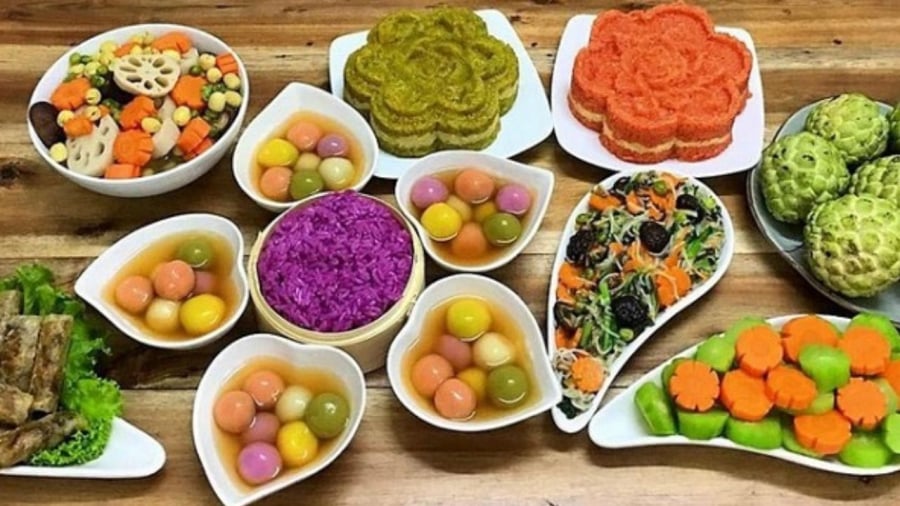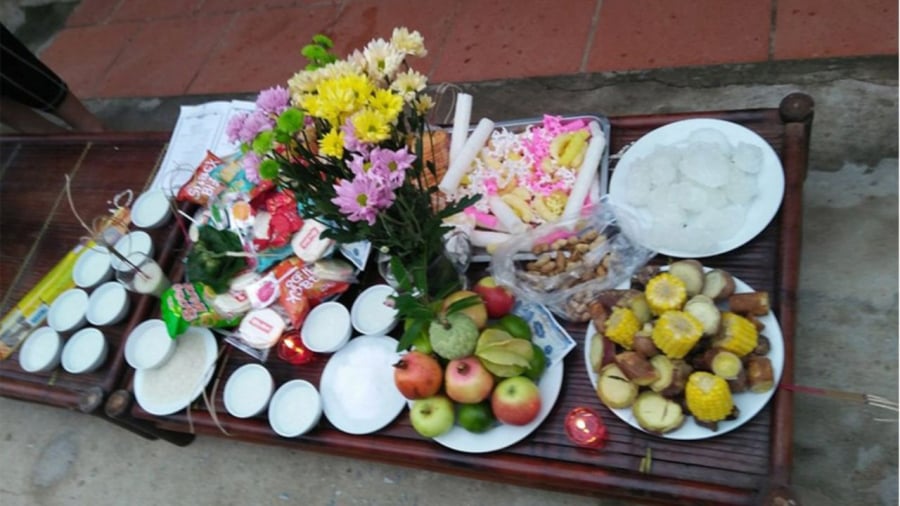In many folk beliefs, the seventh lunar month is considered a month of amnesty for the deceased, as the King of Hell opens the gates of the underworld, allowing spirits to roam the earthly realm. Families often invite their departed ancestors to reunite during this month. As a result, many households place a greater emphasis on offering ceremonies on the first and full moon of the seventh lunar month compared to other months. Some believe that elaborate and abundant offerings are necessary to treat the ancestors to a grand feast.
However, there is also a school of thought that advocates for vegetarian offerings during the seventh lunar month. This is based on the belief that vegetarian offerings are pure and do not incite greed or attachment. On the other hand, non-vegetarian offerings are thought to easily trigger negative emotions of greed, anger, and delusion. Whether offering to ancestors or hungry ghosts, it is important to avoid inciting these negative emotions and creating a competitive environment. Especially during the seventh lunar month, when hungry ghosts and vagrant spirits are believed to be more prevalent, inciting their greed could be dangerous.

Vegetarian Offerings to Subdue Negative Emotions
Important Considerations for Hungry Ghost Offerings
It is advisable to perform hungry ghost offerings outdoors rather than inside the house, as indoor offerings may invite vagrant spirits into the home, bringing misfortune and illness to the family. Heavy negative energy in the house may also cause discomfort to the residents. Suitable offerings for hungry ghosts include boiled sweet potatoes, boiled corn, popcorn, rice crackers, and plain porridge.
The most auspicious time for hungry ghost offerings is on the evening of the 14th or the full moon of the seventh lunar month. According to folk beliefs, this is when the spirits are on their way back to the underworld, so offering at this time is considered ideal. After the ceremony, it is important to bid the spirits farewell and not invite them to stay in the house.

Perform Hungry Ghost Offerings Outdoors
When participating in seventh-month offerings, it is advisable to avoid wearing all-white or all-black clothing, as these colors are associated with mourning and may attract negative energy. High levels of negative energy can have adverse effects on the host, causing fatigue and illness.
After completing the hungry ghost offerings, it is customary to jump over a fire to ward off negative energy. It is also recommended to take a bath, wash your clothes, and change into fresh attire to ensure physical and spiritual cleanliness and prevent negative energy and vagrant spirits from clinging to you.
When performing hungry ghost offerings, refrain from reciting your name in the invocation. The act of offering food and drinks to vagrant spirits is an act of merit, and there is no need to attach your name or expect reciprocity. This also helps prevent the spirits from following you or becoming indebted to you.
This information is based on folk beliefs and personal experiences.





































